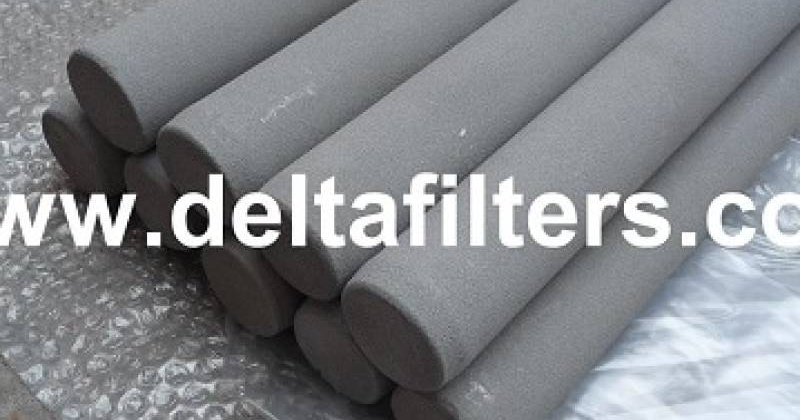
How Sintered Filters in Industrial Filtration are Superior Over Other Methods?
In the vast and evolving world of industrial filtration, selecting the right type of filter is crucial for ensuring operational efficiency, prolonging machinery lifespan, and maintaining product quality. Among the myriad of options available, sintered filters have emerged as a superior choice for a multitude of applications.
But what sets sintered filters apart from their counterparts, and why are they increasingly preferred in industrial settings? Let’s delve into the details.

Understanding Sintered Filters
Sintered filters are manufactured through a process called sintering, where powdered metal is heated until it bonds at a temperature below its melting point. This process results in a highly porous yet structurally sound material that can effectively filter particles from gases and liquids. The beauty of sintered filters lies in their customizable porosity, meaning they can be tailored to specific filtration needs, from ultrafine particulate capture to more substantial debris removal.
Key Advantages of Sintered Filters in Industrial Filtration
1. Durability and Longevity
Sintered filters are renowned for their robust construction. Unlike paper, cloth, or wire mesh filters that can easily tear, break, or erode, sintered filters can withstand harsh conditions, including aggressive chemicals, high temperatures, and continuous mechanical stress. This durability significantly extends their service life, making them a cost-effective solution in the long run.
2. Consistent Performance
Due to their unique manufacturing process, sintered filters maintain consistent pore size distribution. This uniformity ensures stable filtration performance, with minimal risk of bypass or channeling, where liquids or gases could pass through the filter without being adequately cleaned.
3. High Filtration Efficiency
Sintered filters are capable of achieving extremely high filtration efficiencies, with the ability to capture particles down to the sub-micron level. This precision makes them indispensable in applications where purity is paramount, such as in the pharmaceutical, food and beverage, and semiconductor manufacturing industries.
4. Chemical and Thermal Resistance
Materials used in sintered filters, such as stainless steel, bronze, and titanium, offer excellent resistance to a wide range of chemicals and temperatures. This versatility enables their use in environments that would compromise or degrade other types of filters.
5. Cleanable and Reusable
Unlike disposable filters that contribute to waste and ongoing costs, sintered filters can be cleaned and reused multiple times. Methods such as backflushing, ultrasonic cleaning, and chemical cleaning can restore the filter’s performance, thereby reducing environmental impact and operational costs.
Applications in Industrial Settings
The superior characteristics of sintered filters have led to their widespread use across various industries. In chemical processing, they are used to filter corrosive fluids and gases. In the pharmaceutical industry, they ensure the sterility of air and gases. The automotive sector utilizes them for filtering engine and cabin air as well as various hydraulic fluids. Moreover, their thermal resistance makes them ideal for hot gas filtration in energy and waste management applications.

Choosing Sintered Filters for Your Filtration Needs
When considering sintered filters for your industrial applications, it’s essential to partner with a reputable manufacturer that can provide custom solutions tailored to your specific requirements. Factors such as material composition, pore size, and filter geometry should be carefully evaluated to ensure optimal performance and longevity. The industrial filtration landscape is constantly shifting, with new challenges arising from stricter regulatory standards and the pursuit of greater operational efficiency. In this context, sintered filters stand out for their unmatched durability, efficiency, and adaptability. By choosing sintered filters, industries can safeguard their operations, protect the environment, and ultimately, ensure the quality of their products. As the demand for more reliable and efficient filtration solutions grows, the superiority of sintered filters becomes ever more apparent, making them a cornerstone of modern industrial filtration.
Any Queries: support@deltafilters.com
Copyright © 2021 All Rights Reserved.
